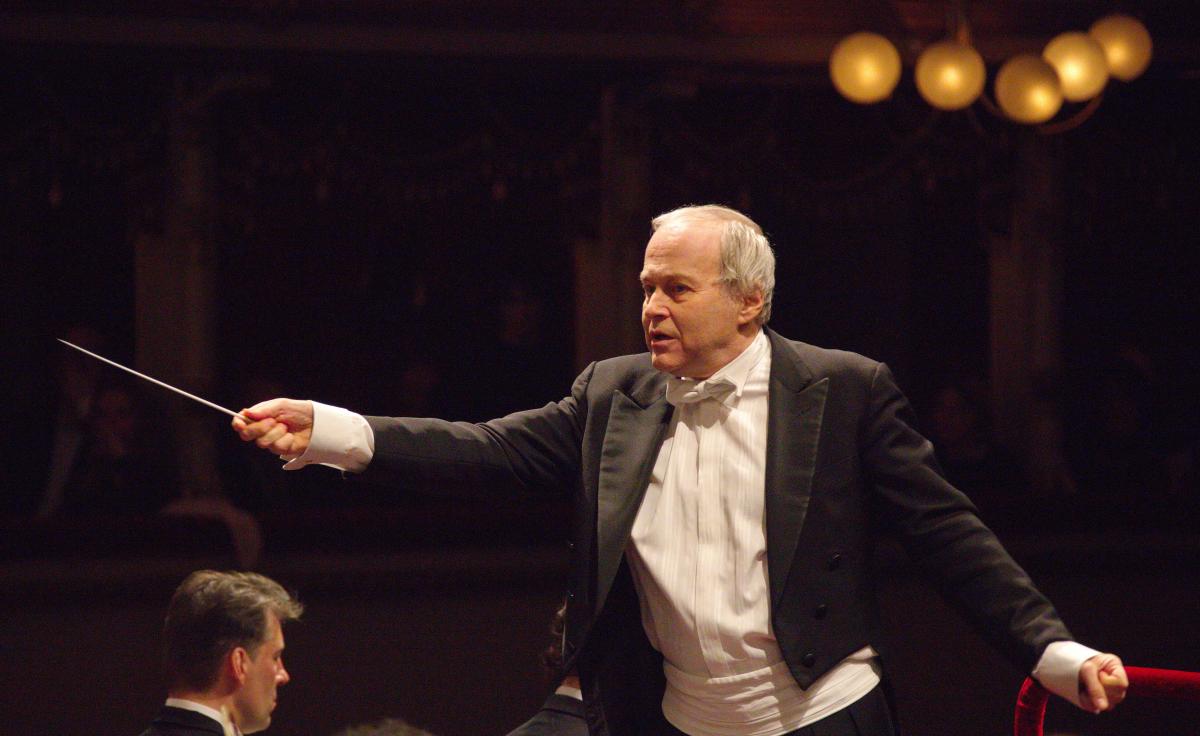

|
[The following biography is from Fischer's official
website]
He is the founder of two international festivals where he has found an artistic home. Under his direction, the Wagner Festival in Budapest has established an excellent reputation in the more than ten years of its existence - with opera productions at the Palace of Arts, including Wagner’s Ring cycle as their centrepiece performed on four consecutive days every year. The Haydn Festival in Eisenstadt was founded in 1987 and has established its reputation as a renowned centre for performing the music of Haydn. At the same time, Ádám Fischer founded the Österreichisch-Ungarische Haydn Philharmonie for the festival. In the many years as their Principal Conductor he set new standards for the interpretation of Haydn's music. The recordings of the complete Haydn symphonies which have received numerous awards are a testimony to this achievement. He retains close links with the orchestra as their Honorary Conductor. Ádám Fischer‘s most recent project for the forthcoming seasons is to dedicate himself to the complete works of Gustav Mahler which he will perform in concert and record live on CD together with the Düsseldorfer Symphoniker whose Principal Conductor he has been since 2015. He is also Artistic Consultant to the Tonhalle concert hall in Düsseldorf where he has initiated a human rights award which will be presented every year at a specially organised human rights concert. Ádám Fischer has a close relationship with the Danish Chamber Orchestra in Copenhagen, whose Principal Conductor he has been since 1998, an artistic partnership which has found its expression especially in a highly acclaimed and award-winning recording of Mozart’s complete symphonic work. This successful collaboration is now being continued with a Beethoven cycle. At the Wiener Staatsoper, which has been one of his artistic homes since 1973, Ádám Fischer has conducted several new productions and as many as 26 different operas. In the current season besides his Vienna appearances he will also join the Wiener Staatsoper for guest performances of Le nozze di Figaro and Don Giovanni at Hamburg´s Elbphilharmonie and the Tonhalle in Düsseldorf. With an
extremely wide repertoire of German and Italian opera, Ádám Fischer
has appeared for more than thirty years at all the leading opera houses
worldwide including the MET in New York, the Bayerische Staatsoper in Munich,
Covent Garden in London, the Opéra de Bastille in Paris, Oper Zürich
and La Scala in Milan, where he will return this season for new productions
of Ernani and Gianni Schicch.
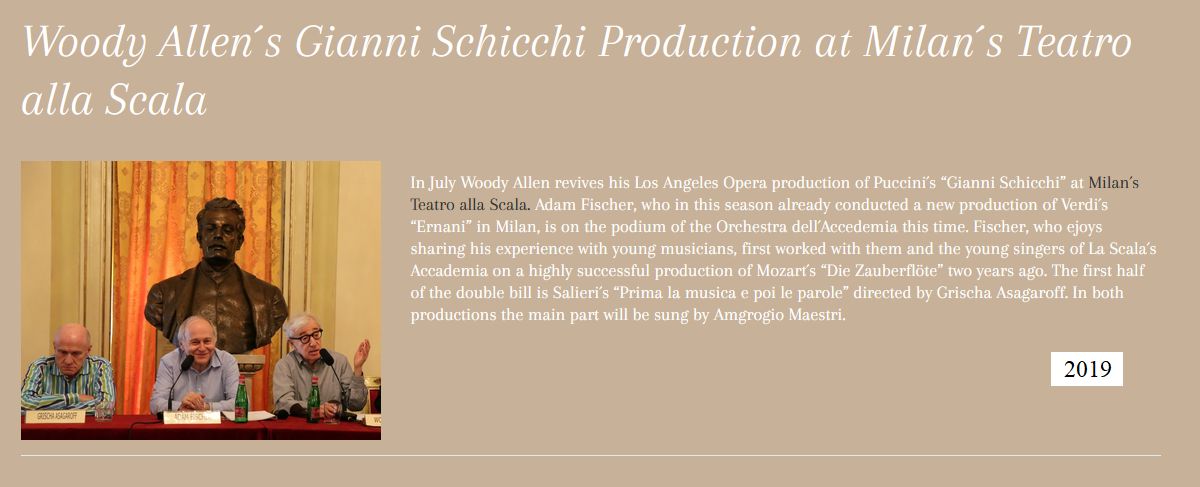
A guest at the Bayreuth Festival for many years, he was elected Conductor of the Year by the German magazine Opernwelt in 2002 for his performances of Wagner’s Ring cycle. In the concert hall, Ádám Fischer regularly appears on the podium with the Wiener Philharmoniker (2019 subscription concerts at the Vienna Musikverein and a concert tour to London, Amsterdam and the Carnegie Hall New York), Wiener Symphoniker, the Orchestra of the Age of Enlightenment (2018 at the Rheingau Music Festival and the Beethovenfest Bonn), the Mozarteum Orchester Salzburg (Mozart matinees at the Salzburg Festival) and in collaboration with all the leading orchestras worldwide such as the Münchner Philharmoniker, Bamberger Symphoniker, Tonhalle Orchester Zürich, Orchestre de Paris, London Philharmonic, Chicago and Boston Symphony Orchestras, NHK Symphony Orchestra. After studying composition and conducting in his home town Budapest and in Vienna with the legendary Hans Swarowsky, Ádám Fischer first took up engagements as a répétiteur and Kapellmeister which led him to Graz, Helsinki, Karlsruhe and Munich. He was General Music Director in Freiburg (1981-1983), Kassel (1987-1992) and Mannheim (2000-2005) before returning to his native Budapest as Artistic Director of the Budapest Opera (2007-2010). Two Echo Klassik Awards for the recordings of the complete collection of symphonies by Joseph Haydn (Österreichisch-Ungarische Haydn Philharmonie), an International Classical Music Award in 2015 for a recording of the complete collection of Mozart’s symphonies (Danish Chamber Orchestra) and the Grand Prix du Disque awarded for the recordings of Goldmark’s The Queen of Sheba and Bartók’s Duke Bluebeard’s Castle document the wide range of his work in his extensive discography. Ádám Fischer is an Honorary
Member of the Wiener Staatsoper and the Musikverein für
Steiermark in Graz. He is a recipient
of the Order of Dannebrog which
was given to him by the Queen of Denmark and has been awarded
the honorary title of professor by the Austrian Federal President.
In 2018 Adam Fischer was awarded Israel´s prestigious Wolf
Prize honouring him as an outstanding artist and strong supporter
of human rights.
|
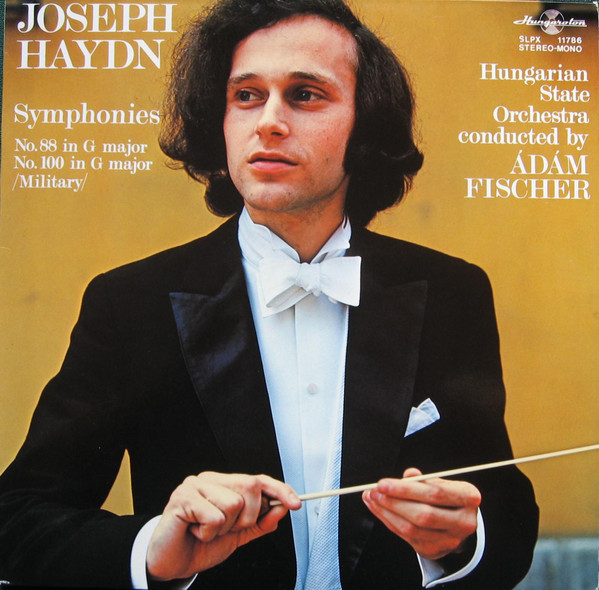 Bruce Duffie: I understand
you have conducted some Wagner performances?
Bruce Duffie: I understand
you have conducted some Wagner performances?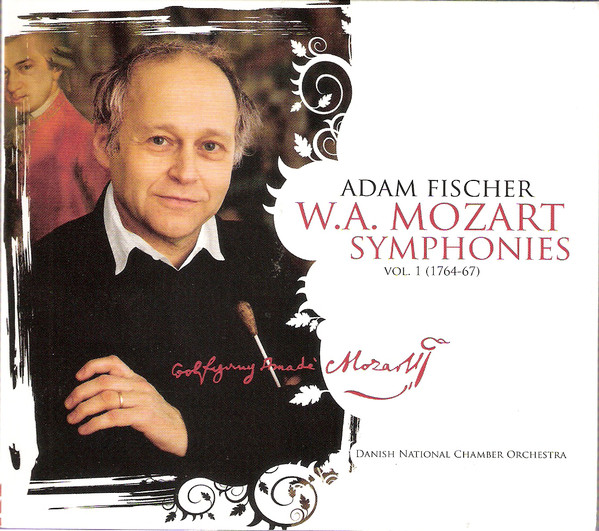 BD: You also do dramatic plays.
Do you do ballet, also?
BD: You also do dramatic plays.
Do you do ballet, also?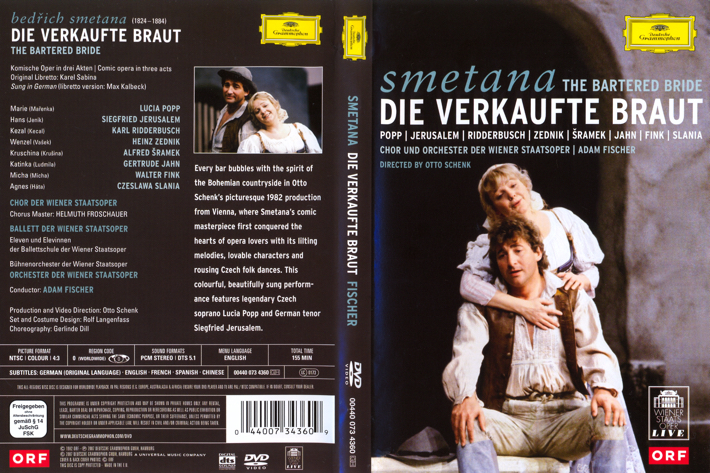 BD: Does Freiburg commission any
new works?
BD: Does Freiburg commission any
new works?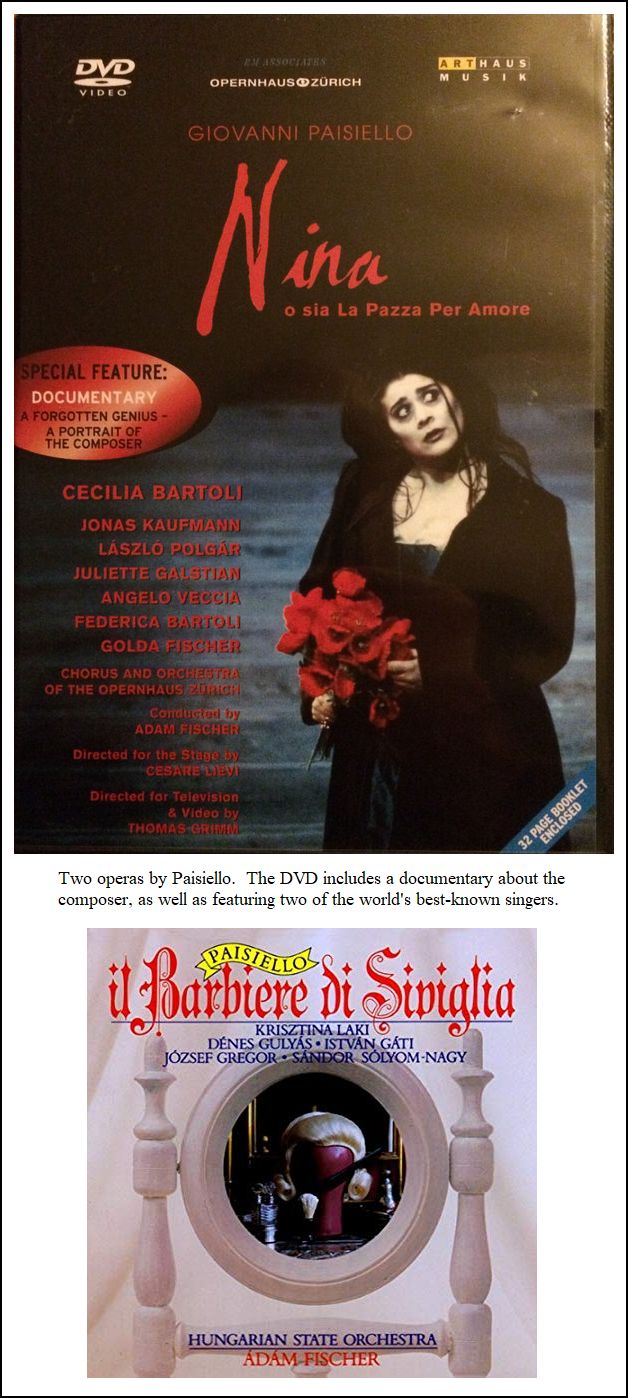 BD: Let us go back to your Tristan in Graz. Did
you enjoy that production?
BD: Let us go back to your Tristan in Graz. Did
you enjoy that production?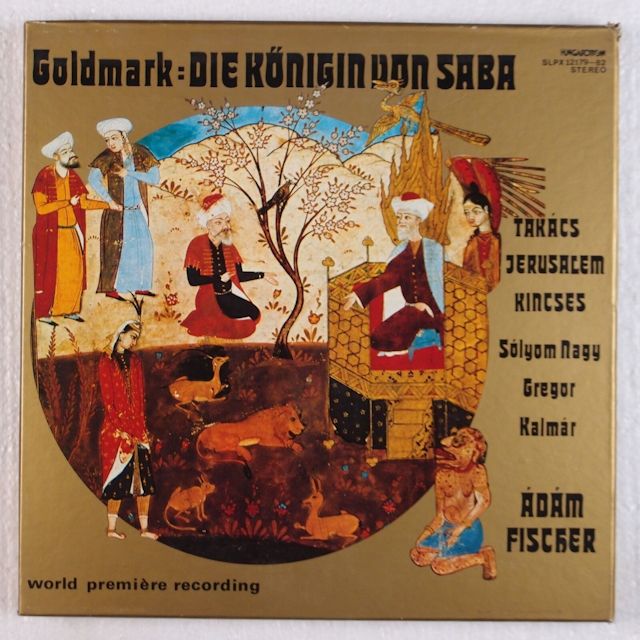 ÁF: Yes, it’s bigger
than Freiburg, but not bigger than Vienna or Munich. I was
working a lot in Munich last two seasons. I lived in Munich
and I led sixty performances.
ÁF: Yes, it’s bigger
than Freiburg, but not bigger than Vienna or Munich. I was
working a lot in Munich last two seasons. I lived in Munich
and I led sixty performances.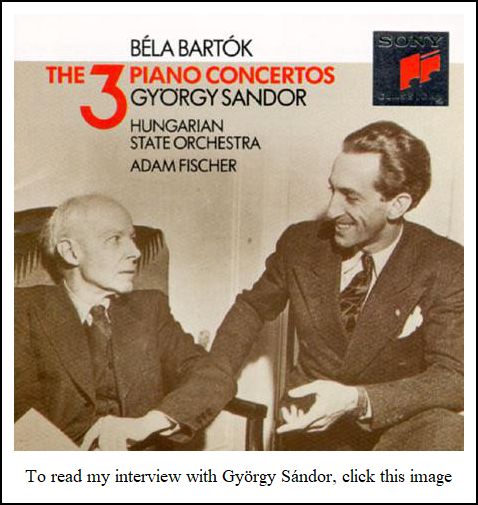 ÁF:
Like The Queen of Sheba?
ÁF:
Like The Queen of Sheba?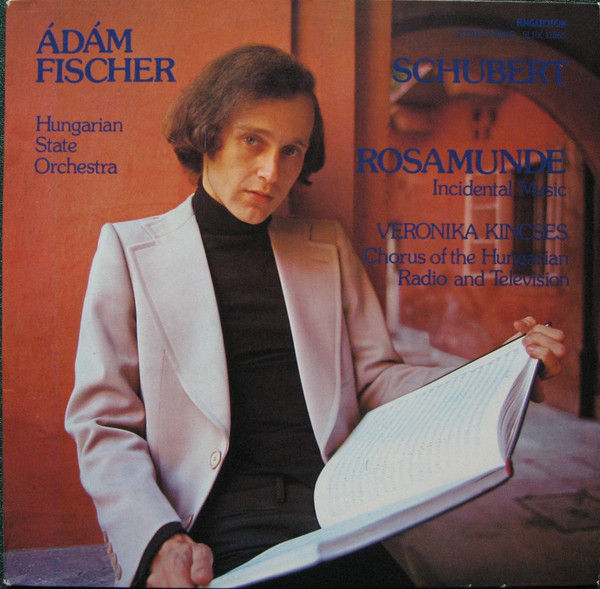 ÁF: I don’t dare to do very much. We haven’t
decided yet for the next season if we should Orlando Furioso
by Vivaldi, or Idomeneo by Mozart. If we do Orlando
Furioso, that’s a baroque opera, but I would be a bit afraid
because I haven’t studied this old style very long. Maybe it’s
not good for me to do it. Maybe I should just let somebody
do it who understands it more.
ÁF: I don’t dare to do very much. We haven’t
decided yet for the next season if we should Orlando Furioso
by Vivaldi, or Idomeneo by Mozart. If we do Orlando
Furioso, that’s a baroque opera, but I would be a bit afraid
because I haven’t studied this old style very long. Maybe it’s
not good for me to do it. Maybe I should just let somebody
do it who understands it more.|
Ferenc Erkel (November 7, 1810 - June 15, 1893) was born in Gyula to a Danube Swabian family, a son of Joseph Erkel who was a musician. His mother was the Hungarian Klára Ruttkay. The libretti of his first three operas were written by Béni Egressy. Beside his operas, for which he is best known, he wrote pieces for piano and chorus, and a majestic Festival Overture. He acquainted Hector Berlioz with the tune of the Rákóczi March, which Berlioz used in The Damnation of Faust. He also composed the music of Himnusz, the national anthem of Hungary, which was adopted in 1844. He headed the Budapest Philharmonic Orchestra (founded in 1853).
He was also the director and piano teacher of the Hungarian Academy of
Music until 1886. The Hungarian State Opera House in Budapest was opened
in 1884, of which he was the musical director.
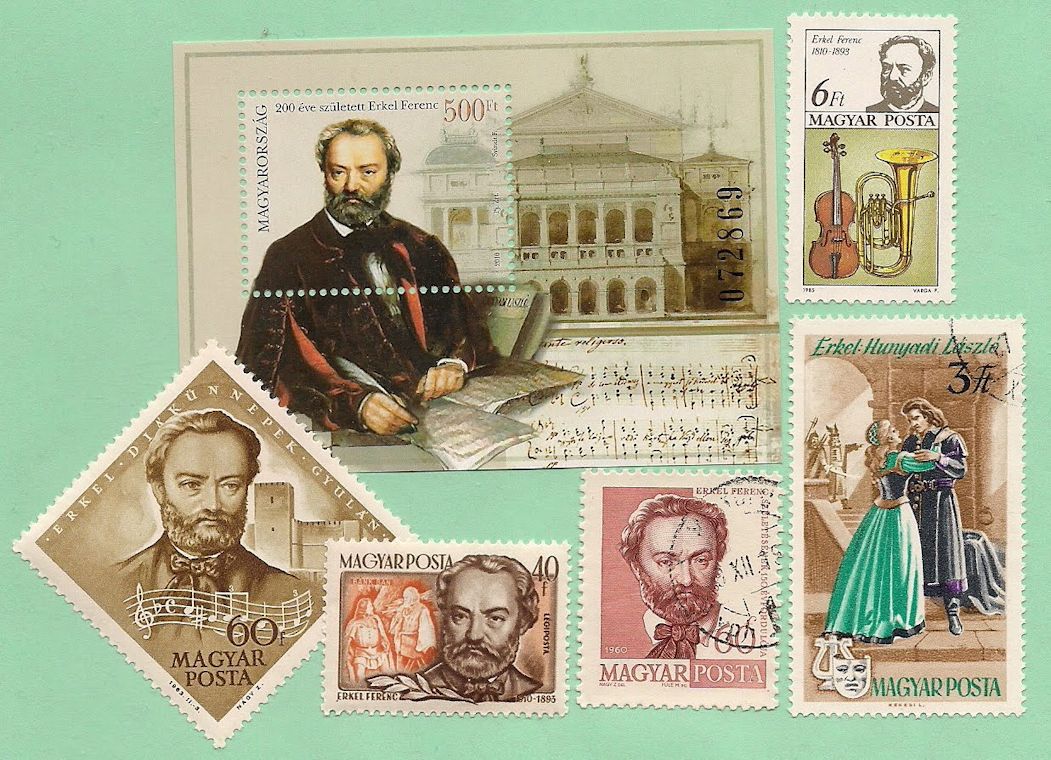
|
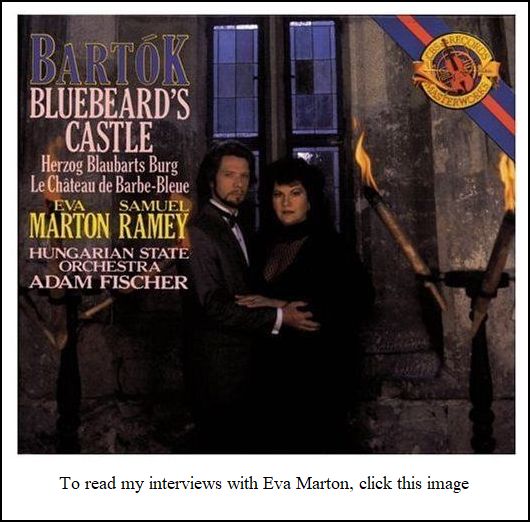 ÁF: I don’t think people would understand
them.
ÁF: I don’t think people would understand
them.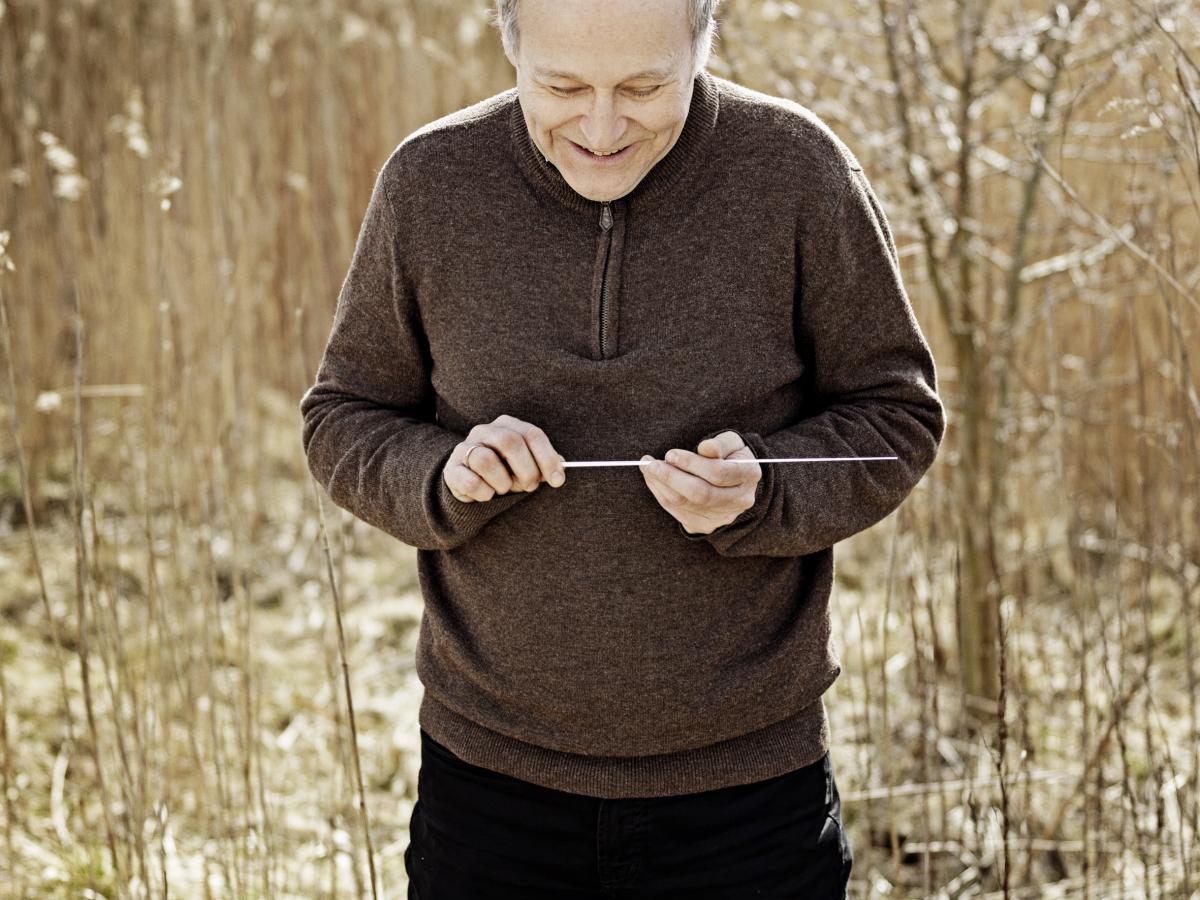
© 1981 Bruce Duffie
This conversation was recorded in Chicago on November 11, 1981. Portions were broadcast on WNIB 1986, 1988, 1992, and 1998. This transcription was made in 2019, and posted on this website at that time. My thanks to British soprano Una Barry for her help in preparing this website presentation.
To see a full list (with links) of interviews which have been transcribed and posted on this website, click here. To read my thoughts on editing these interviews for print, as well as a few other interesting observations, click here.
Award - winning broadcaster Bruce Duffie was with WNIB, Classical 97 in Chicago from 1975 until its final moment as a classical station in February of 2001. His interviews have also appeared in various magazines and journals since 1980, and he now continues his broadcast series on WNUR-FM, as well as on Contemporary Classical Internet Radio.
You are invited to visit his website for more information about his work, including selected transcripts of other interviews, plus a full list of his guests. He would also like to call your attention to the photos and information about his grandfather, who was a pioneer in the automotive field more than a century ago. You may also send him E-Mail with comments, questions and suggestions.